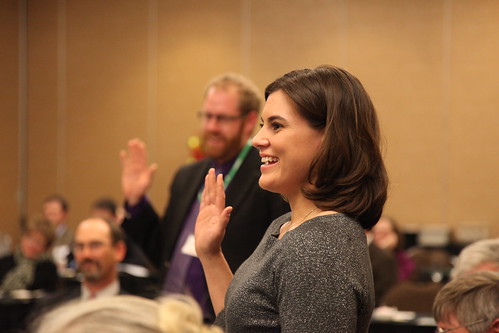
Meet Verity Ulibarri
Family values have proven to be the source of Verity Ulibarri’s success. As the vice president for Farm Credit of New Mexico and a board director for the Sorghum Checkoff, the sorghum producer from New Mexico is making strides in the agriculture industry.
Ulibarri, a fifth-generation farmer, said she always wanted to be a farmer. She and her husband, Anthony, started their own farming operation in 2011. They grow sorghum and wheat and run stocker cattle on approximately 1,700 acres of land.
“I grew up driving tractors and working cattle,” said Ulibarri. “I’ve always had a liking for it and a desire to do that. It is my goal to keep propagating the family-farm lifestyle because I think that it is important for kids to grow up with strong family values. It will make them strong contributors to society.”
As a board director for the Sorghum Checkoff, Ulibarri is excited about the opportunity to educate other producers about the benefits of growing sorghum. With the drought and current water situation in New Mexico, she has been having a lot of conversations with farmers about considering grain sorghum, a crop that typically requires less water while providing a satisfactory return on investment.
This industry leader said she promotes the crop in other ways, as well, encouraging individuals to include more sorghum-based foods in their diets and informing them about the many products currently available.
Agriculture has become more progressive in order to keep up with the increasing demand, Ulibarri said, and she contributes her personal success within the sorghum industry to her upbringing.
“My parents raised me to be pretty independent, competitive, and to strive to do my best no matter what,” she said. “That is probably the biggest reason I am where I am today. It really has nothing to do with the fact that I am male or female, but that I have the ability and drive to do a good job.”



